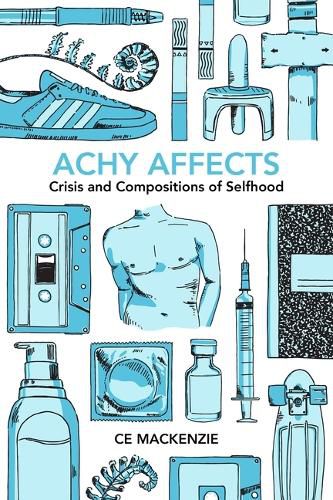Readings Newsletter
Become a Readings Member to make your shopping experience even easier.
Sign in or sign up for free!
You’re not far away from qualifying for FREE standard shipping within Australia
You’ve qualified for FREE standard shipping within Australia
The cart is loading…






Achy Affects is the first affect text to refuse the emotional binary. CE Mackenzie's insistence on recognizing the range of feelings, specifically their collisions and overlaps, is grounded in community outreach, formed through life writing and positioned at the intersections of health rhetoric, trans and affect theories, and composition studies. Organized into four affects--wonder, shame, shyness, and nostalgia--with a final chapter on ache, Achy Affects explores how capitalist logics make communities of people--specifically queer, trans, and drug using--into rhetorical spectacles for the purpose of productive futures. Mackenzie asks how an affective sensitivity toward ache can lead us into deeper compositions of selfhood. Ache, as a heuristic for writing without fix, for writing into the daily and chronic realities of our felt selves, complicates emotion by describing it as collaged, not binaried. Affect has too long relied on dichotomized notions of feeling, but by centering ache, Mackenzie attempts to skirt the trap of positive versus negative to instead release the human body from the spectacle it is forced to perform.
$9.00 standard shipping within Australia
FREE standard shipping within Australia for orders over $100.00
Express & International shipping calculated at checkout
Achy Affects is the first affect text to refuse the emotional binary. CE Mackenzie's insistence on recognizing the range of feelings, specifically their collisions and overlaps, is grounded in community outreach, formed through life writing and positioned at the intersections of health rhetoric, trans and affect theories, and composition studies. Organized into four affects--wonder, shame, shyness, and nostalgia--with a final chapter on ache, Achy Affects explores how capitalist logics make communities of people--specifically queer, trans, and drug using--into rhetorical spectacles for the purpose of productive futures. Mackenzie asks how an affective sensitivity toward ache can lead us into deeper compositions of selfhood. Ache, as a heuristic for writing without fix, for writing into the daily and chronic realities of our felt selves, complicates emotion by describing it as collaged, not binaried. Affect has too long relied on dichotomized notions of feeling, but by centering ache, Mackenzie attempts to skirt the trap of positive versus negative to instead release the human body from the spectacle it is forced to perform.